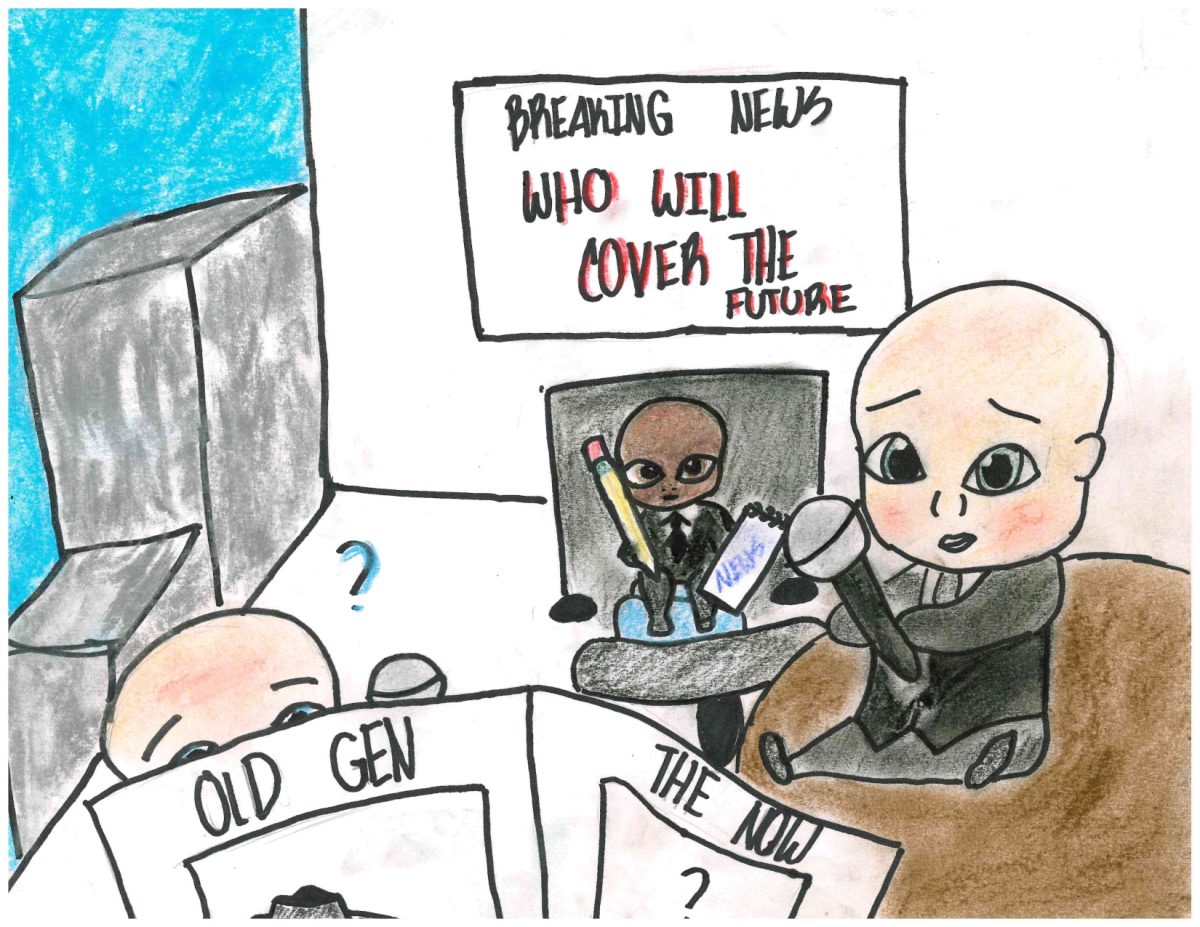To understand what’s happening in the impeachment inquiry, people must look at credible news sources and not believe everything that both political parties, Republicans and Democrats, are saying.
According to Atlanta News Now, impeachment is the way to accuse a president of a crime and to put them on trial to determine whether they are guilty of that crime.
According to the Constitution, Article II, Section 4, in order to be impeached a president must be convicted of treason, bribery or other high crimes and misdemeanors.
However, impeachment is not that simple. There’s a process for impeaching a president.
First, a member of the House of Representatives must introduce an impeachment resolution.
According to The Washington Post, the Speaker of the House then directs six key committees to investigate the president under the impeachment inquiry.
After the investigation, the impeachment resolution goes to the House Judiciary Committee led by Jerry Nadler (Democrat) to decide if there’s enough evidence to support impeachment.
If they do pursue impeachment, they draft the articles of impeachment and send the articles to the House of Representatives for them to debate on each article.
If the house votes no on all the articles then the impeachment process is over and the president remains in office.
However, a simple majority yes vote is only needed on just one article to impeach the president.
However, just because a president is impeached, that does not mean he’ll be removed from office.
Assuming the house does vote yes on the articles, they will send the articles to the Senate where a trial may be held.
However, the Constitution does not require a trial to occur. Senate Majority Leader Mitch McConnell can hold a vote to dismiss the articles of impeachment.
If a trial occurs, the President would plead guilty or not guilty and members of the House would serve as managers having a similar role of prosecutors to present the evidence. The presidents’ attorneys defend him and both sides can cross examine witnesses.
After the trial the Senate votes on if the president is guilty or not. It takes two-thirds of the vote to convict the president. If the two-thirds is met then the president is removed from office.
According to the New York Times, On September 24, Speaker of the House Nancy Pelosi (Democrat) announced a formal impeachment inquiry against President Donald Trump (Republican). Accusing him of betraying his oath of public office and national security by using a foreign power to tarnish a political rival’s reputation for his own political gain. This comes after Trump’s phone call with Ukraine’s president Volodymyr Zelensky.
Pelosi has chosen the House Intelligence Committee lead by Congressman Adam Schiff (Democrat) to lead the investigation.
After Trump’s phone call with Zelensky took place on July 25. A whistleblower has come forward saying that Trump threatened to withhold aid from Ukraine unless Ukraine investigates Joe Biden and his son’s dealings with China and Ukraine’s largest gas company Burisma Holdings.
In response, Trump released a transcript of his phone call with Zelensky, trying to prove his innocence.
After Trump released the transcript, a second whistleblower came forward with firsthand information on some of the allegations against the president.
So much information leaves Americans confused by the lack of clarity, not knowing who to believe.
According to The New York Times, a spokesman and current American officials say that Adam Schiff had early knowledge of the whistleblowers accusations before the whistleblower filed a complaint.
Suggesting that Schiff spoke directly with the whistleblower before he or she came out as a whistleblower and advised them to meet with the Inspector General to file a complaint. This would then suggest that Schiff was behind the whistleblower complaint from the very beginning.
However, Schiff has repeatedly denied ever speaking to the whistleblower during the impeachment hearings.
According to PBS, the whistleblower’s lawyers said the whistleblower never spoke to Adam Schiff.
However, having knowledge of the complaint might explain why Schiff acted so quickly when the director of national intelligence withheld the complaint from Congress.
Another example of misleading information, is when Trump released the transcript of his phone call with Zelensky and then tweeted “Read the transcript it is perfect.” Don’t let that fool you because the transcript is not perfect. It’s not a complete word for word recording of his phone call with Zelensky.
On the bottom of page one on the transcript it reads, “Poor telecommunications connections and variations in accent and/or interpretation. The word inaudible is used to indicate portions of a conversation that the notetaker was unable to hear.” These are the supposed reasons listed on the actual transcript of why it is not word for word.
According to CBS, there might not actually be a full recording of the phone call meaning we might never see a full transcript between Trump and Zelensky. This is because of Richard Nixon and the early 1970s Watergate scandal. Ever since then, presidents have stopped recording their phone calls.
Since it’s not a full transcript could there be something left out of it that Trump doesn’t want people to see. So Trump is wrong in the fact that it’s a “perfect” transcript.
Another example of not not knowing who to trust was during the first day of the impeachment hearings.
On November 13, the hearings began and the democrats called Ambassador Taylor, the serving Ambassador to Ukraine, to testify. But how much does he truly know because what he knows is based off of hearsay and yes hearsay can be used in impeachment hearings.
“The report of another person’s words by a witness, which is usually disallowed as evidence in a court of law,” is the definition of hearsay from Lexico Dictionary.
What that means is someone heard something from someone else, and that is their evidence.
“Hearsay can be much better evidence than direct [evidence],” Congressman Mike Quigley (Democrat) said during the hearings.
Hearsay, though, is not better than direct evidence. If it was, then it would be allowed in court.
With all of this confusing misinformation where should people go to get the truth and the real facts? Every time someone says something about impeachment you should always fact check that person to make sure that they are telling the truth.
You can do this by going to objective news sources to get the news like NPR, Washington Post, NBC and The Associated Press.
What people know shouldn’t all come from cable news channels like CNN and FOX NEWS where they tend to push only one political viewpoint on the subject.
But, it is still good to know what people’s viewpoints are on the left and the right side of the political spectrum.
With impeachment coming, Americans can’t believe everything they hear
As the impeachment process gets underway, how much can we trust both sides of the impeachment inquiry? And where should people go if they want the truth?
0
More to Discover






